Imagine IF
Institute for the Future has spent over 55 years helping people prepare for what comes next.
Institute for the Future has spent over 55 years helping people prepare for what comes next.
IFTF was founded in 1968 as an independent, public-interest nonprofit and a spinoff from RAND Corporation with original support from the Ford Foundation. Our founding articles of incorporation state that “it is imperative that society acquire the necessary tools, methods and research capabilities to identify and cope with socio-economic questions before they become tomorrow’s critical problems.” This was a revolutionary call-to-action at a tumultuous time in history—a call for a more rigorous systems approach to the future that would help people find agency in their own expertise to be better prepared in uncertain times.
Over half a century later, we are still driven by this same singular ambition: to look as far ahead as possible and imagine the world “if.”
Asking “what if?” allows us to transcend the limits of short-term thinking, to change course before it’s too late, and to see future possibilities framed in intensely human terms.
IFTF is the world's oldest continuously running futures research and educational organization. We believe people can harness the power of “if”—the power of imagination to awaken a sense of agency in their future and drive change in themselves and their organizations—and our tools and programs are designed for exactly that.
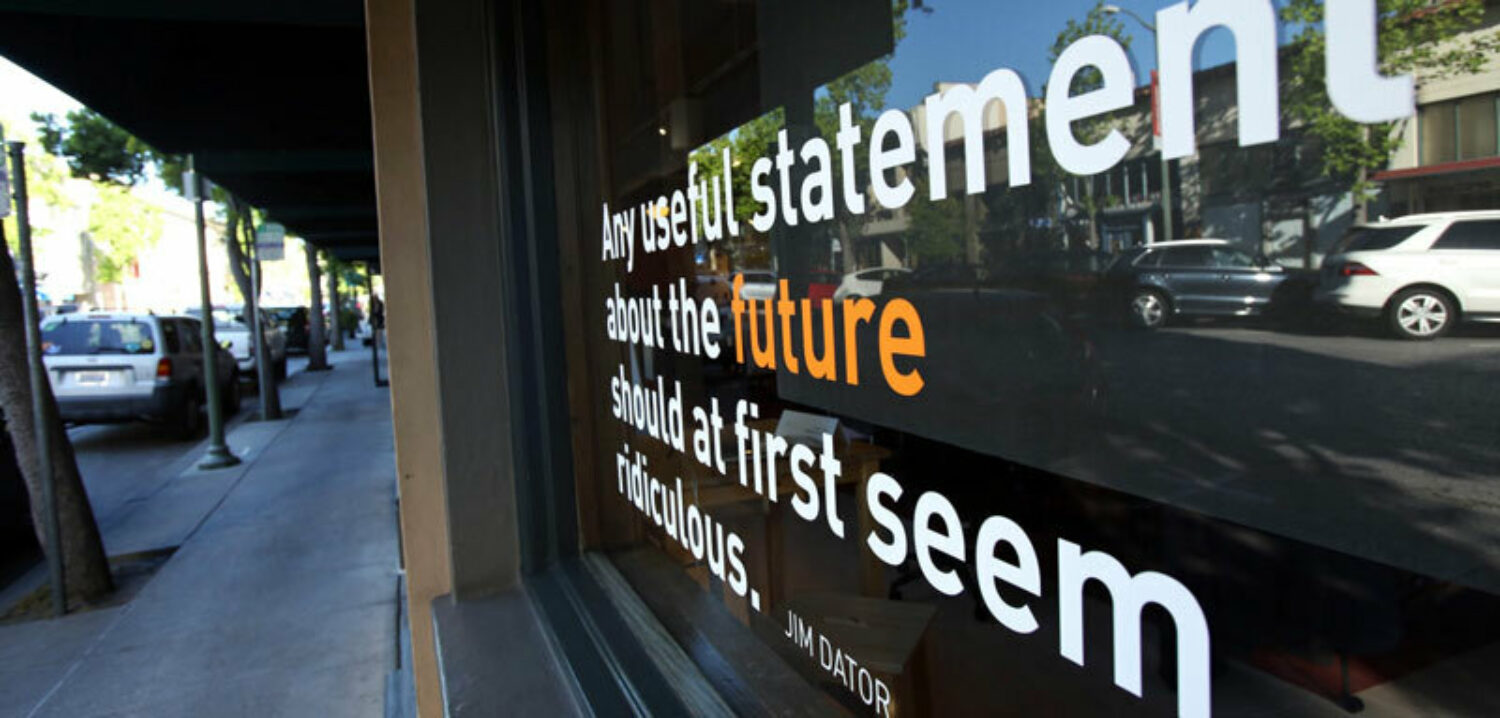
In the first decades of IFTF, human communication served as the primary motivator for our work. IFTF studied such topics as emerging technologies, the future of business and society, the telecommunications industry, alternative energy policies, and the social implications of computers. We pursued the horizons of groupware, telehealth, connected households, consumer behavior, new employer-employee relationships, and organizations reorganizing to thrive in hyperconnected times.
Along the way, we developed a human-centered process called ethnographic foresight, which anticipates emergent futures by understanding the values, behaviors, and toolsets of future-facing people in the context of their daily lives. We went out into the world, into people's homes and workplaces to uncover signals of how people experience the present in ways that are likely to grow and have increasing importance in the long-term future. These intimate encounters focused on human issues: an emerging health economy, global sustainability, our impending encounter with our ability to re-engineer ourselves.
Today, as an independent, registered 501(c)(3), nonprofit research institute with a global reach and impact, we continue to build new tools to help organizations, communities, and nations navigate complexity, uncertainty, and change so they can become future-ready.
IFTF was founded by Paul Baran, Olaf Helmer, and Ted Gordon, visionaries who saw the power of computer networks to build collective intelligence. Founded foresight on Delphi Method, making sense of complex systems shaping the future. Turned analyses into models and scenarios, building tools and frameworks to assess wide range of futures.
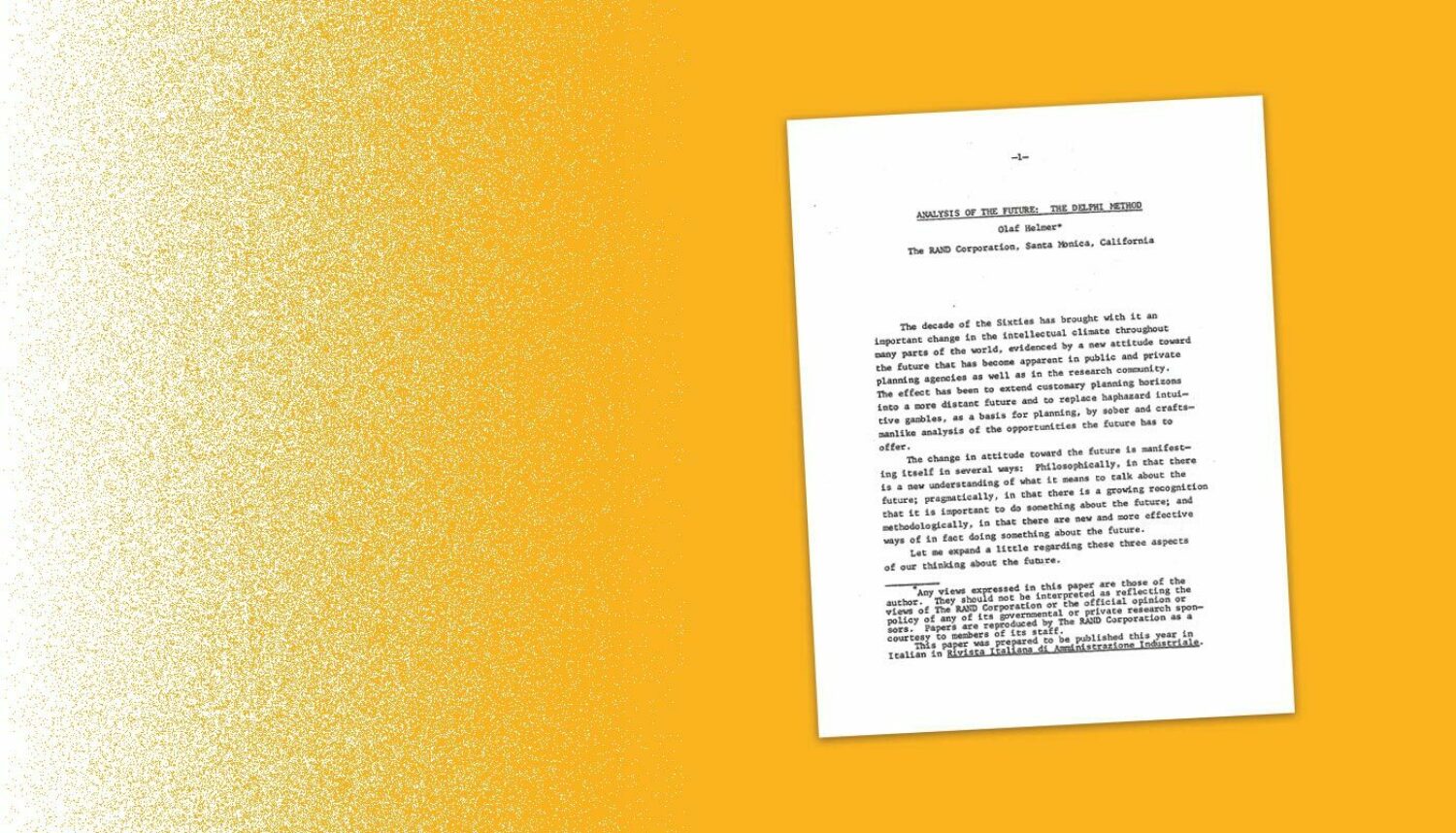
IFTF grew under president Roy Amara’s leadership with grants from NSF and ARPA. Prototyped conferencing systems, turning computer networks into communication platforms. First membership program, Project Aware, forerunner of IFTF’s flagship Ten Year Forecast. In 1978, published one of the earliest forecasts of climate change.
Electronic Meetings explored "the use of audio, video, and computer technologies to facilitate information exchange, negotiation, problem solving and decision making within groups whose members may be separated by both space and time."
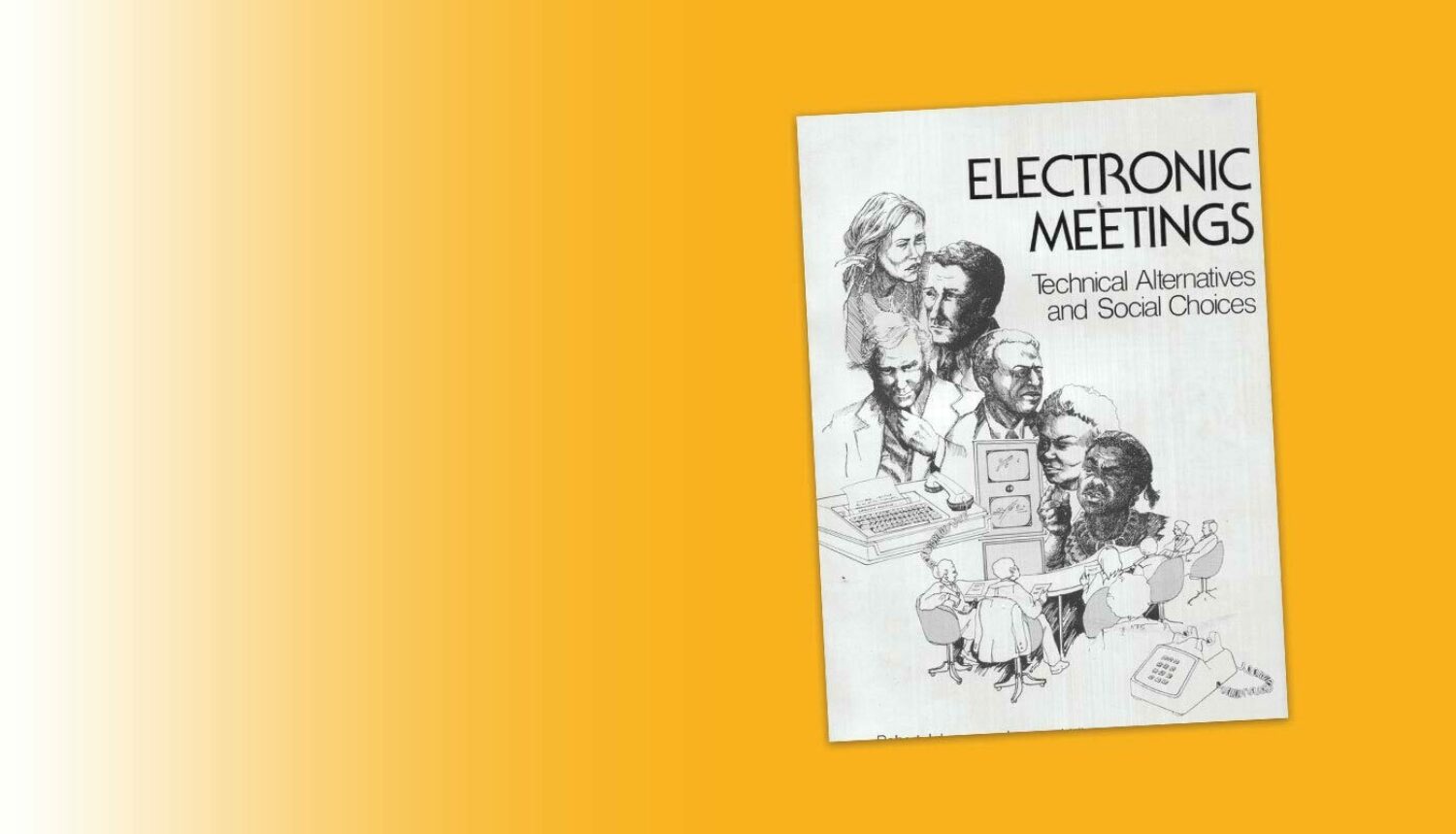
Information and communication technology changed lives in organizations and households. IFTF researchers worked with large organizations to understand the future of collaborative teams. Anticipated robotics, warehouse data systems, electronic shopping, and home banking. Launched long-running health care and education forecasts. Prototyped multimedia tools for modeling futures.
Upsizing The Individual In The Downsized Organization takes a practical look at the strategies for managing organizations in a decade of re-engineering, globalization, and rapid technological change.
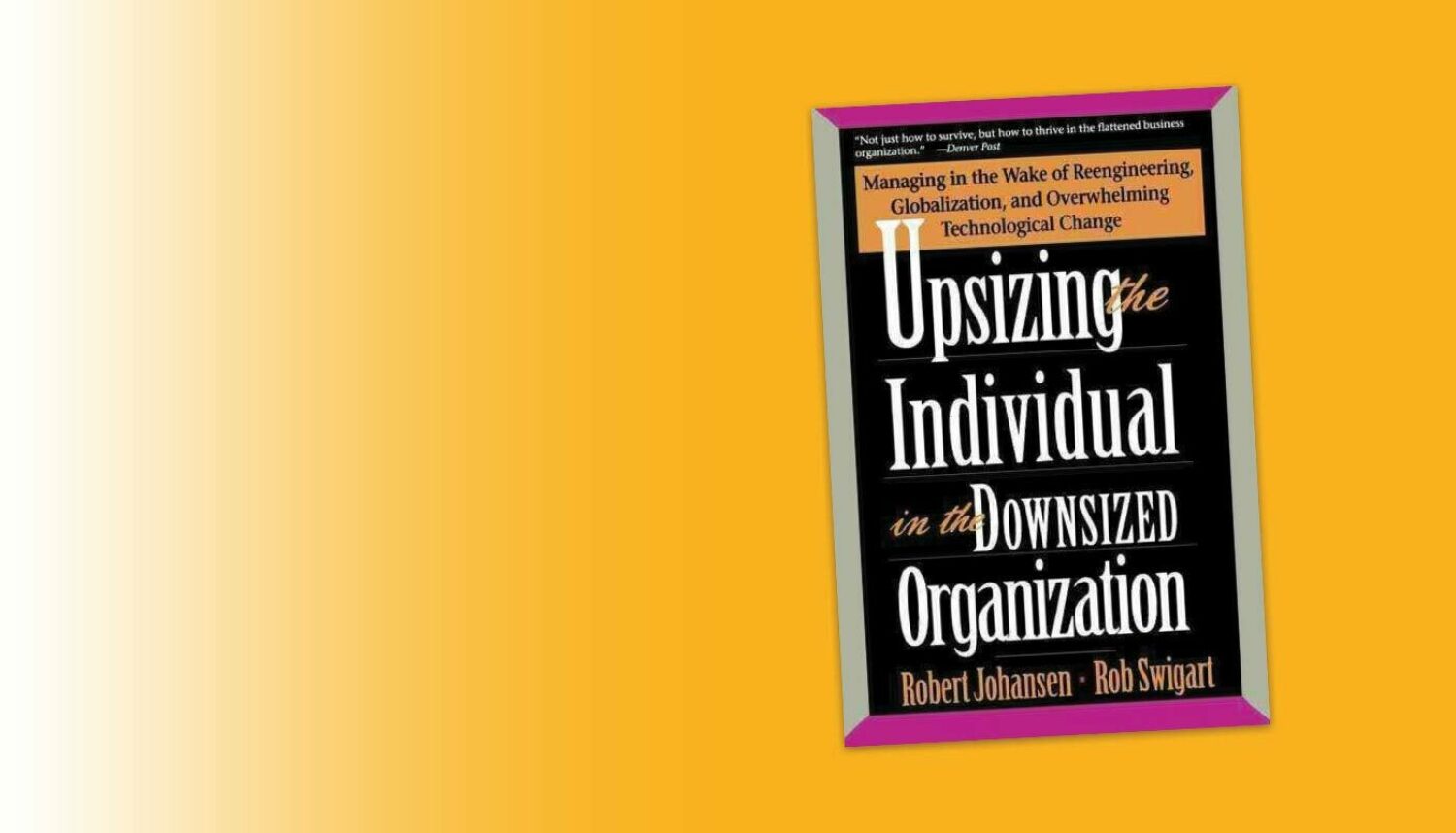
Change became transformation as the World Wide Web drove rapid reinvention. IFTF needed new frameworks amid disruptive innovation. New president Ian Morrison introduced the two-curve future, where incumbents on downward must decide when to join innovators on the rise. Tools from social sciences (surveys, ethnography) led to rich visions of work, households, health, and more.
The Second Curve: Managing the Velocity of Change tackles the challenge of preparing for a future that is disruptively different from the present.
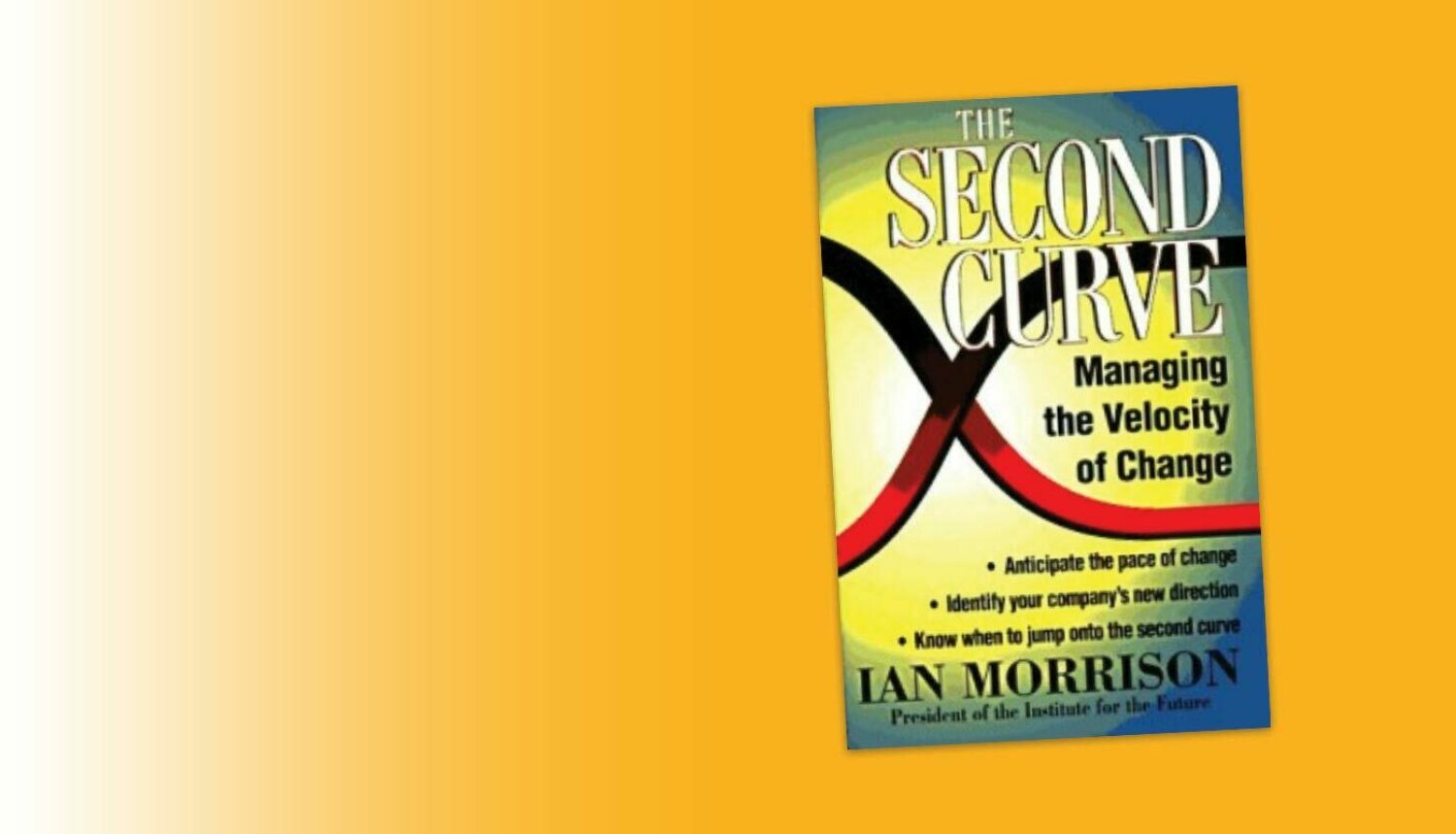
Great Recession led to engagement with the public in what president Bob Johansen called “Foresight-Insight-Action.” World’s first massively multiplayer forecasting game, Superstruct, led players through prescient scenarios: pandemic, food crisis, outlaw economy, massive migrations, energy wars. IFTF innovated communication formats (maps and artifacts from the future) to make foresight more accessible.
Get There Early lays out a practical path from Foresight to Insight to Action that has become the heart of IFTF's Foresight Essentials trainings.
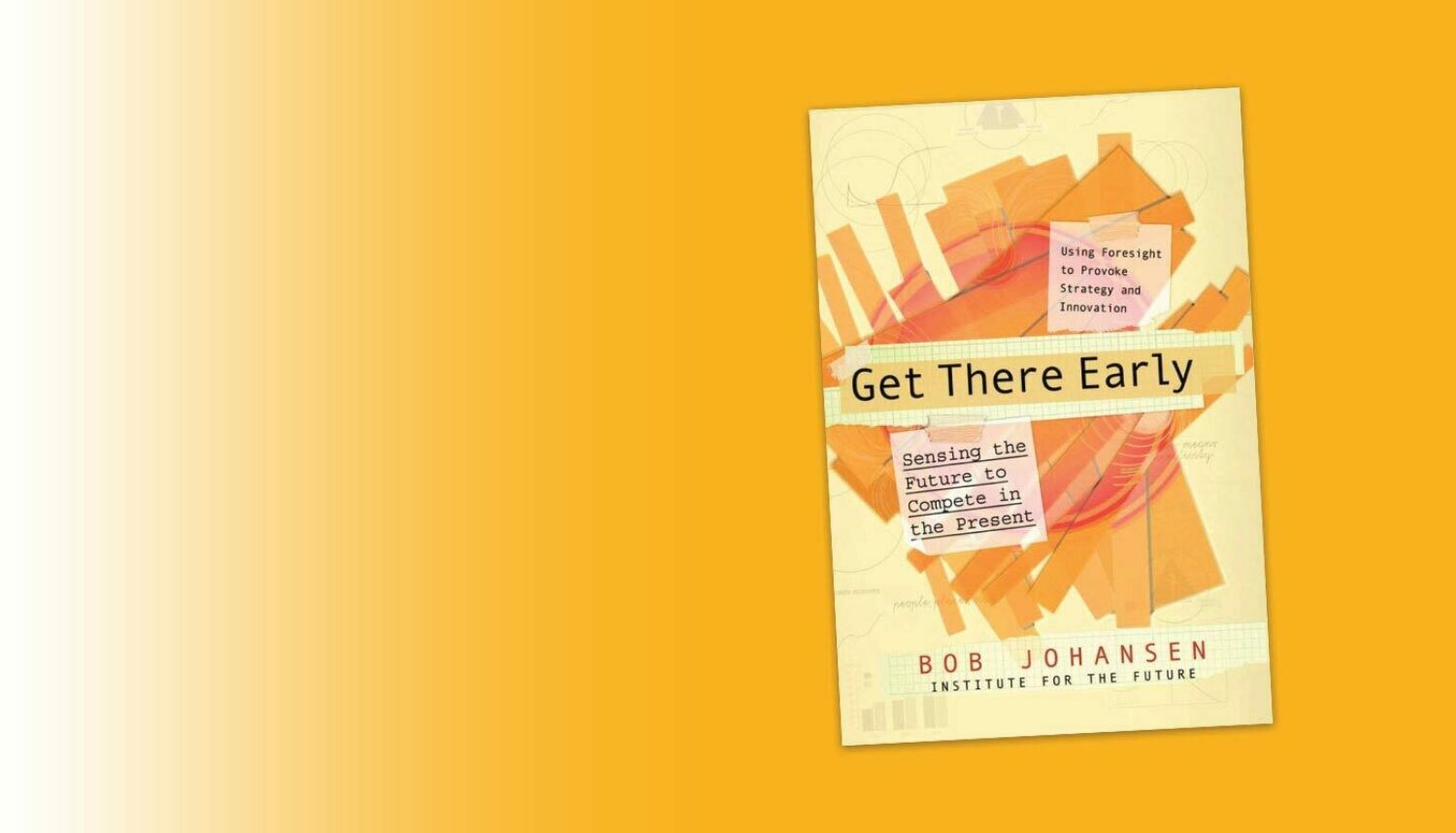
Increasingly urgent futures: accelerating climate change, disintegrating governments, escalating inequality. IFTF introduced participatory platform Foresight Engine. New president Marina Gorbis provided theoretical framework: “socialstructed future,” or relationship-driven economy where individuals harness technologies to collaboratively create products, services, ideas and indeed, new futures. Emerging Media Lab explored the metaverse while Foresight Studio provided fundamental training.
The Nature of the Future: Dispatches from the Socialstructed World examines the ways a networked world could come to grips with urgent futures.
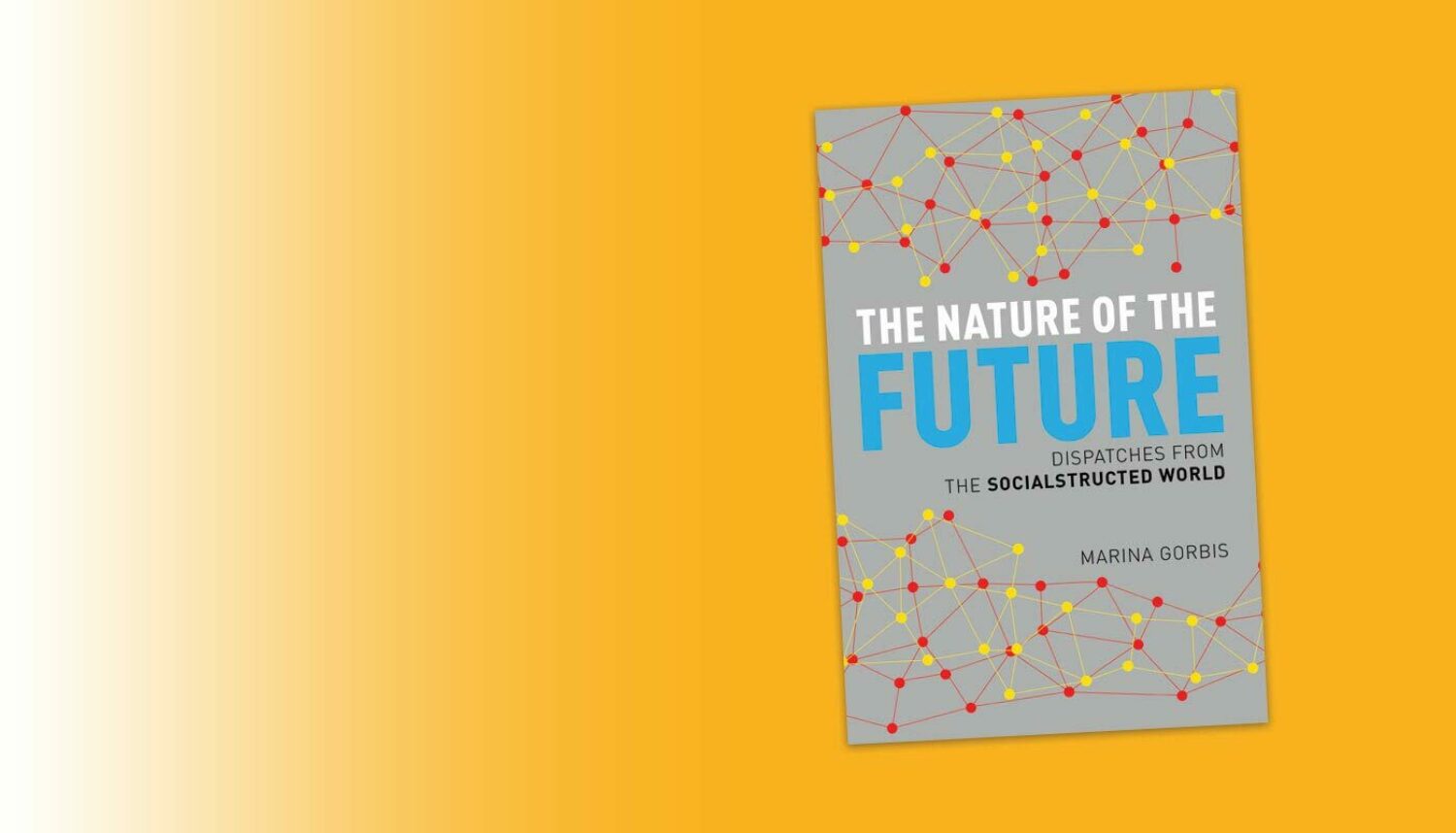
New decade opened with global pandemic akin to those IFTF imagined in past forecasts, revealing deeper disease in global society, one that challenged basic values (democracy, equity, science, the very meaning of work). IFTF’s network spurred to understand the roots of today’s failures while imagining something better.
Imaginable taps the science of psychology and the brain to learn how to anticipate the unthinkable and imagine the unimaginable.
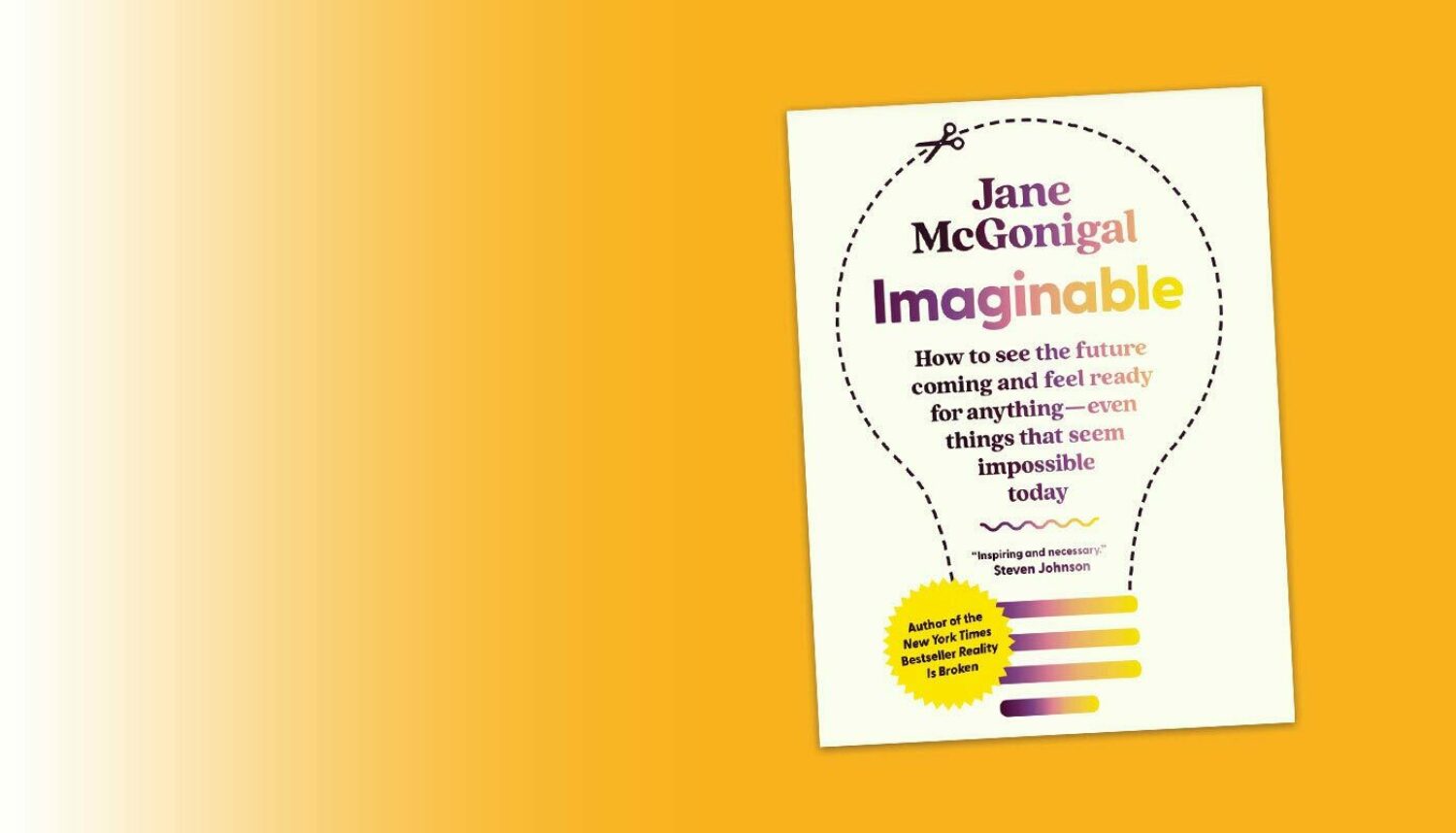
For more information about how we can help your organization shape its future, please contact:
Help us learn more about you and your interest in foresight.
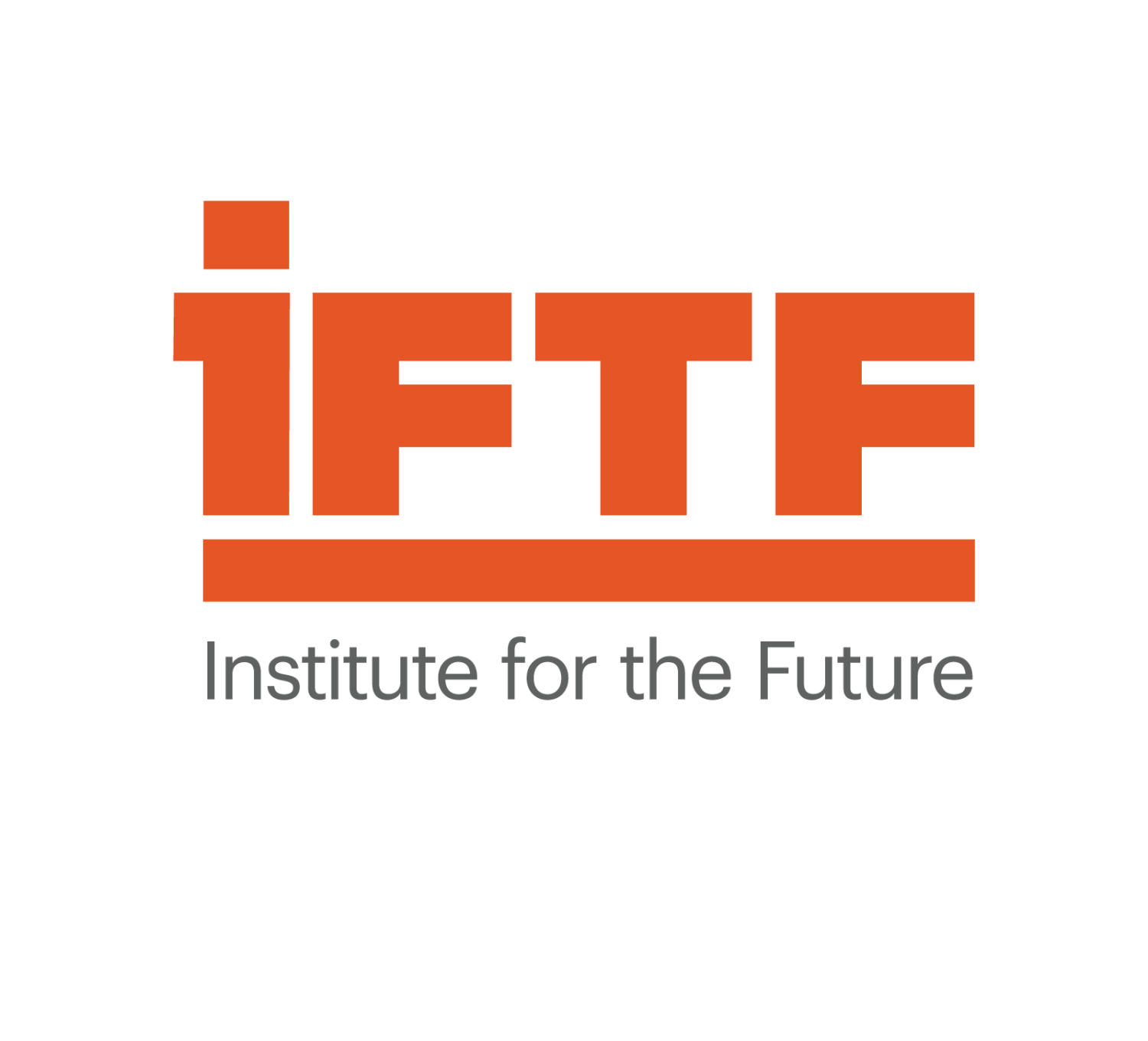
ABOUT INSTITUTE FOR THE FUTURE
Institute for the Future is the world’s leading futures organization. For over 55 years, businesses, governments, and social impact organizations have depended upon IFTF global forecasts, custom research, foresight education and training to navigate complex change and develop future-ready strategies. IFTF methodologies and toolsets yield views of transformative possibilities across all sectors that together support a more equitable and sustainable future. Institute for the Future is a registered 501(c)(3) nonprofit organization based in Palo Alto, California. For more, visit www.iftf.org.